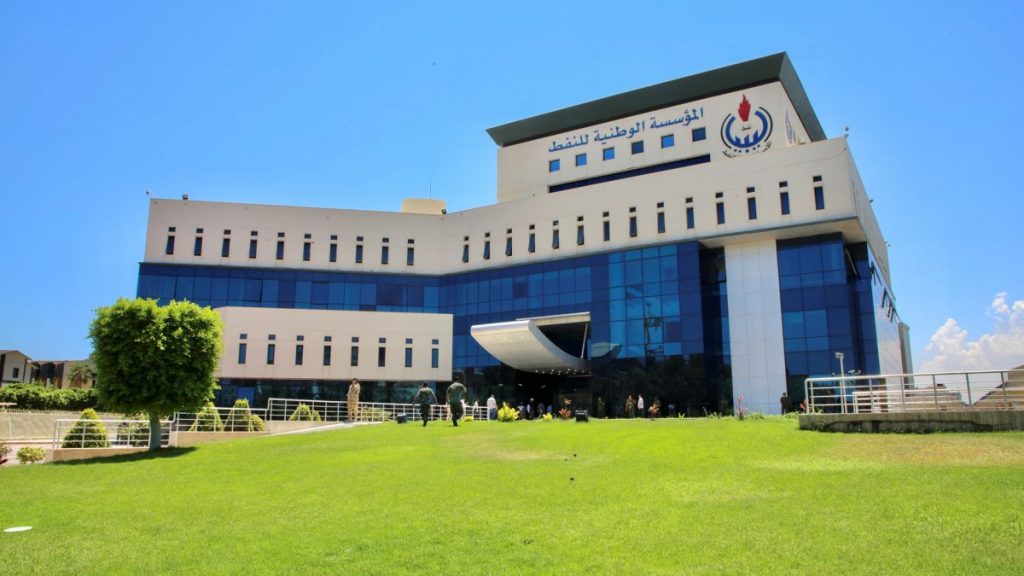
– NOC lifts force majeure at all oilfields and terminals
– Production resumption could pave way for OPEC member to raise output
– Technical problems delay full capacity production at Elfeel, engineers say
Benghazi — Libya’s eastern-based government and Tripoli-based National Oil Corp (NOC) announced on Thursday the reopening of all oilfields and export terminals after a dispute over leadership of the central bank was resolved.
This could pave the way for the OPEC producer to raise oil output significantly. NOC said in a statement it had lifted force majeure at all oilfields and terminals as of Oct. 3.
“We have recently received a formal security assessment concerning Sharara, El Feel and Essider, which confirms that NOC can resume the Operations and Exporting Operations to its customers,” it said in the statement.
It added that chief Farhat Bengdara met the new central bank governor, Naji Issa, and they discussed a mechanism for the bank to finance projects to raise production to maintain financial sustainability and “compensate for the deficit in revenues resulting from closures and the decline in oil prices”.
Libya’s oil output has been disrupted repeatedly in the chaotic decade since 2014 when the country divided between two rival authorities in the east and west following the NATO-backed uprising that toppled Muammar Gaddafi in 2011.
Libya was producing about 1.2 million barrels of crude per day before output at the Sharara, El Feel and Essider oilfields was halted in late August and early September. It was exporting most of it. In September, exports averaged 460,000 bpd according to oil analytics firm Kpler.
Technical Problems at Elfeel
NOC declared force majeure on Aug. 7 at Sharara oilfield – one of Libya’s largest production areas with a capacity of about 300,000 barrels per day – and on Elfeel oilfield on Sept.2.
Sharara is located in southwestern Libya and operated by a joint venture of NOC with Spain’s Repsol, France’s TotalEnergies, Austria’s OMV, and Norway’s Equinor.
Elfeel has a capacity of 70,000 barrels per day and is operated by Mellitah Oil and Gas, a joint venture between NOC and Italy’s Eni.
Two engineers at the field told Reuters the oilfield resumed production but not with full capacity due to maintenance work.
Earlier, three engineers said there were some “technical problems” at Elfeel.
The government in Benghazi in the east said oil production and exports would resume normal operations, after the rival authorities agreed last month to appoint Issa as new central bank governor.
Authorities in the second-largest city had closed oilfields and halted most of crude exports on Aug. 26 in protest against a move by the Presidential Council, which sits in Tripoli in the west, to replace veteran central bank chief Sadiq al-Kabir.
The head of the Presidential Council, Mohamed al-Menfi, met with Issa on Wednesday and stressed “the need for the central bank governor to commit to the technical role of the bank, stay away from politics, and not surpass the legal jurisdictions of the board of directors.”
The United Nations Support Mission in Libya UNSMIL welcomed in a statement NOC announcing the lifting of force majeure on oil production.
The mission emphasized that “it is essential that revenues from this vital resource be channeled through the appropriate institutional framework, and ultimately to the Central Bank of Libya.”
*Ayman Werfalli, Ahmed Elumami, Tala Ramadan, Arunima Kumar, Ahmad Ghaddar & Enas Alashray; Nayera Abdallah & Ahmed Elumami; editing: Hugh Lawson, Emelia Sithole-Matarise & David Gregorio – Reuters



